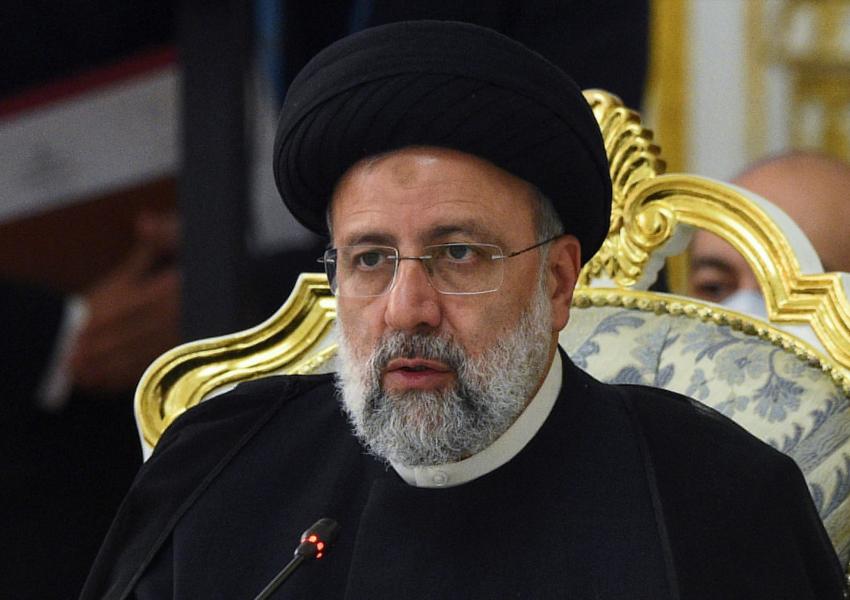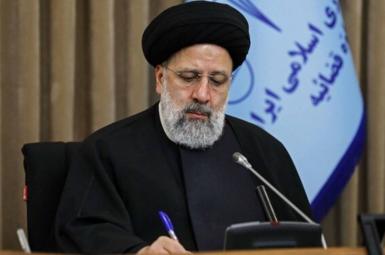
The Road To Shanghai Can Ease But Not Solve Iran's Problems
Iran’s recent acceptance as a member of the Shanghai Cooperation Organization (SCO), where it has been an observer since 2005, is seen by many in Tehran as opening up a road to bypass ‘maximum pressure’ sanctions introduced by United States President Donald Trump in 2018 and continued by President Joe Biden.
Joining large regional coalitions is one way for states to boost their international standing. The SCO, originally a security grouping, covers over 60 percent of world land mass, is home to roughly half the world’s population, holds 45 percent of world energy reserves, and generates over a quarter of global GDP.
The SCO includes eight states – India, which alone has 1.3 billion people and a $2.6-trillion GDP, Pakistan, Kazakhstan, Kyrgyzstan, Tajikistan, and Uzbekistan. Mongolia, Belarus and Afghanistan are observers, while Turkey and Azerbaijan are among its ‘dialogue partners.’
But the organization has two important members. China and Russia have most sway in SCO decisions.
The SCO’s original mandate, which remains important, is developing joint security approaches. This has been seen, with Iranian involvement, in developments in Afghanistan with the end of the 20-year US military presence. Tehran is also interested in China’s approach to internet surveillance and cyber technology.
Ending dollar dominance
But the SCO has increasingly emphasized economic potential. At an SCO summit in 2007, Russia’s President Vladimir Putin criticized the “the monopoly in world finance and the policy of economic selfishness,” referring to the role of the US and the dollar. Putin committed Russia to “changing the global financial structure so that it will be able to guarantee stability and prosperity in the world and to ensure progress.”
Russia and China have successfully reduced use of the dollar in bilateral trade. Russia's dollar-denominated exports to China fell from 90 percent in 2013 to 61 percent in the first three quarters of 2020, according to Russia's central bank. Russia's US Treasury bonds fell from $176.3 billion in October 2010 to $6.15 billion in January.
With major economic powers as members, smaller SCO member states can use their national currencies and reduce use of the dollar in international transactions while boosting their mutual working relationships and knowledge sharing. While not well known to many international think-tanks, the SCO has emerged as a major grouping.
On the other hand, Iran needs Western technology and trade, and it cannot rely on a barter-type trade without the use of the dollar. Russia and China both have huge foreign currency revenues and their economies do not revolve just with their non-dollar trade.
For Iran, SCO membership can strengthen connections to China’s silk road project, the Belt and Road Initiative, which by one estimate will annually boost global GDP by $7.1 trillion by 2040.
Iranian state media argue that Tehran can seize a unique opportunity for economic development and improving infrastructure. While SCO membership alone is not enough to boost Iran’s economic relations, many economists in Iran argue that it gives the chance to tap into the $330 billion annual trade between member countries, benefit from the political security the SCO can offer, and reduce the bite of US sanctions.
Iran is also developing ties with the five-member Eurasian Economic Union (EAEU), which links Russia, Belarus, Armenia, Kazakhstan, and Kyrgyzstan in an internal single market of 180 million. Iran’s non-oil trade with EAEU members jumped 93 percent year-on-year in the first four months (March 21 – July 22) of the current Iranian year, exceeding $1.6 billion.
Raisi looks east
The Raisi administration’s commitment to ‘look east’ will place greater stress on the importance of SCO membership but accession will not be immediate − it could take up to tow years − and will not meet all Iran's demands.
Continuing US sanctions will limit the cooperation of SCO member states with Iran. Tehran’s not joining the Financial Action Task Force (FATF) may, as opponents of FATF accession in Tehran argue, help shield some transactions from the US.
But it will not change the fact that SCO members – including Iran’s biggest trading partner China – have substantial US interests they wish to protect. China, Russia and India are all FATF members and required to apply FATF rules on due diligence to transactions on a blacklisted state, as Iran has been since 2020.
Without wider changes in foreign policy, Iran will not be able to enjoy the full benefits of the SCO.









